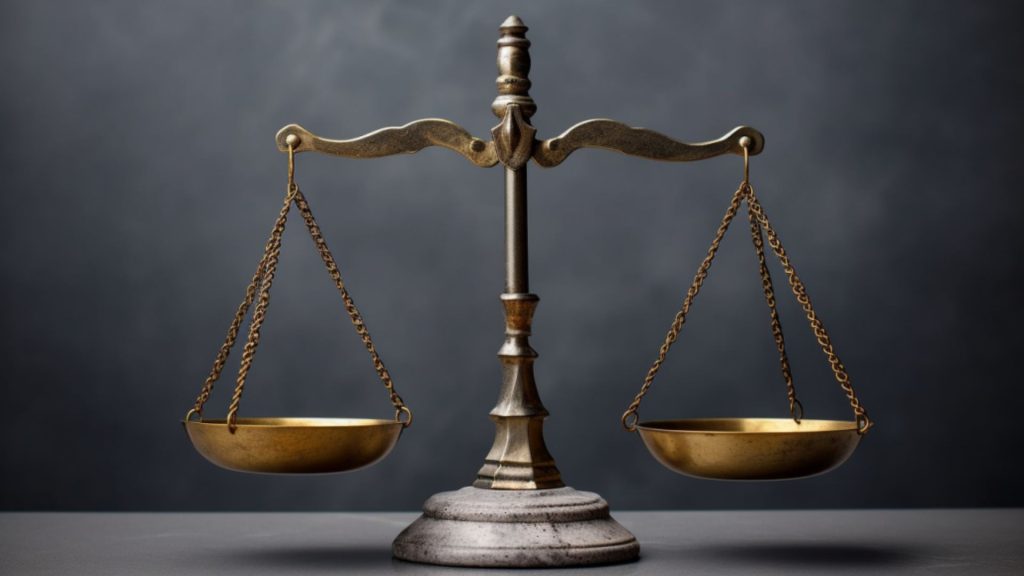
Parashat Shoftim begins with words that seem to echo across time: “Justice, justice shall you pursue, so that you may live and inherit the land that the LORD your God is giving you” (Deut. 16:20). The Torah doesn’t just call for justice once—it repeats the word, tzedek, tzedek. The sages wondered why. Rashi said the doubling teaches us that both the means and the ends must be just. Ramban added that justice is not optional or occasional—it must be pursued everywhere and at all times. The Midrash Tanchuma goes further still: “If you distort judgment, it is as though you destroy the world.”
Those are sobering words. They remind us that justice isn’t an abstract concept. It is a reflection of God’s own character. Proverbs teaches: “Honest balances are from the LORD; all the weights in the bag are His work” (Prov. 16:11). If even the scale in a marketplace must reflect God’s truth, then how much more the judgments we render—whether in a court, in a congregation, or in our own hearts? The Talmud tells us that when a judge rules with integrity, the Shekhinah, God’s very presence, dwells with him (Sanhedrin 6b). Every act of justice is, in its way, a glimpse of heaven.
But justice is not measured by how we treat the powerful. The Torah warns us instead: “Cursed is the one who withholds justice from the stranger, the fatherless, and the widow” (Deut. 27:19). The test of righteousness is always in how we treat the vulnerable. Rabbi Eliezer said, “The sword comes into the world because of justice delayed and justice perverted” (Avot 5:8). And centuries later, James—Yaakov, the brother of our Lord—wrote to the early Messianic community that “pure religion” means to care for orphans and widows in their distress and to keep oneself unstained by the world (James 1:27). The Torah, the rabbis, and the Besorot all point in the same direction: God’s people must protect those who cannot protect themselves.
Shoftim also warns against favoritism. “Do not show partiality, and do not take a bribe” (Deut. 16:19). The rabbis told stories of judges who refused even the smallest favors—a place to sit in the shade, a handful of grain—because they feared their judgment would be clouded (Ketubot 105b). And James rebuked his community for showing honor to the rich while telling the poor to stand aside: “Have you not become judges with evil thoughts?” (James 2:4). Whether in the courtroom or in daily life, impartiality is part of God’s calling to His people.
The Torah also teaches us to be careful and deliberate: no one can be condemned on the testimony of a single witness (Deut. 17:6). Truth takes patience, humility, and discernment. Yeshua reminds us of this in the Sermon on the Mount: “Do not judge, or you too will be judged. For in the same way you judge others, you will be judged” (Matt. 7:1–2). He is not telling us to abandon judgment altogether—he also says, “Judge with right judgment” (John 7:24). Instead, he warns us to temper our judgments with humility, always remembering that the standard we use for others will be applied to us. James echoes this when he says, simply and powerfully: “Mercy triumphs over judgment” (James 2:13).
All of this comes into sharper focus as we enter the month of Elul. Each morning the shofar is sounded to stir us from our complacency. Soon the heavenly court will be opened on Rosh Hashanah, and on Yom Kippur the verdict will be sealed. The Machzor says: “All who enter the world pass before You like sheep.” These are the Days of Awe, when every deed, every word, and every judgment is weighed on God’s scales. The Baal Shem Tov once taught that when we judge others, Heaven applies those very same judgments to us. In that sense, the way we treat others is already shaping the way we ourselves will be judged.
And yet, we do not stand in fear alone. For we believe in Messiah Yeshua, who is both Judge and Advocate. He embodies chesed ve’emet—mercy and truth together (Psalm 85:10). He renders judgment with righteousness, but he also intercedes with compassion. Because of him, we can enter the Days of Awe not only with trembling, but with hope.
The Torah’s command still calls to us: tzedek, tzedek tirdof—justice, justice shall you pursue. As we prepare to stand before the heavenly Judge, we are called to pursue justice in our own lives. That means resisting favoritism, guarding our words, protecting the vulnerable, and judging with humility. If we do so, then our judgments will reflect God’s own heart, and our lives will bear witness to His kingdom.
In this season of awe, may we learn to walk more fully in justice and mercy, so that when we stand before God, He will recognize in us the reflection of His own righteousness.
